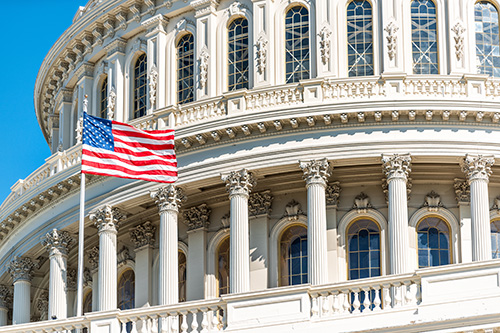State-Sponsored Visas Are Constitutional
 Last week, Senator Ron Johnson (R-WI) introduced the State Sponsored Visa Pilot Program Act of 2017. Senator John McCain (R-AZ) is an official co-sponsor. If enacted, this bill would create a flexible state-sponsored visa system for economic migrants whereby states would regulate the type of visas and the federal government would handle admissions and issue the actual visas. Representative Ken Buck (R-CO) plans to introduce a companion version in the House in the near future.
Last week, Senator Ron Johnson (R-WI) introduced the State Sponsored Visa Pilot Program Act of 2017. Senator John McCain (R-AZ) is an official co-sponsor. If enacted, this bill would create a flexible state-sponsored visa system for economic migrants whereby states would regulate the type of visas and the federal government would handle admissions and issue the actual visas. Representative Ken Buck (R-CO) plans to introduce a companion version in the House in the near future.
This is an innovative bill but we have encountered one persistent question from conservatives, libertarians, and others who are sympathetic to the idea of immigration federalism: Is a state-sponsored visa constitutional?
The state-sponsored visa is perfectly consistent with the current migration system. The Johnson-Buck bill does not actually end federal control of migration but it merely creates a visa category whereby the states select the migrants through whatever processes they establish. The federal government is in full control of visa issuance and admission at ports of entry. Thus, states would be acting as sponsors on behalf of migrants whom they represent in their states in the same way that they currently sponsor foreign-born students at state universities and other workers in their capacity as employers.
In 2014, Brandon Fuller and Sean Rust authored a policy analysis for Cato that explored how a state-sponsored visa program could operate in the United States. They wrote a section addressing the constitutionality of such a program:
Historically, the Supreme Court has interpreted Congress to have “plenary power” over immigration, generally giving deference to the political branches of the federal government as an extension of the Naturalization Clause under Article 1, section 8, clause 4, which gives Congress the power “To establish an uniform Rule of Naturalization.”[1] Under current interpretations, this gives Congress the sole power to establish naturalization guidelines. However, Congress can also allow states to be involved in immigration policy in areas besides naturalization, such as managing a state-based visa within federal guidelines. Some immigration policies, with the exception of naturalization, can be partly devolved to the states within a range of powers permitted by the federal government.
The recent case of Arizona v. the United States, which decided the constitutionality of Arizona’s strict immigration laws, reiterates the point that states are allowed to participate in immigration policy and enforcement, but only within the scope permitted by the federal government.[2] In debating the case of Arizona v. United States, Peter Spiro, an immigration law scholar at Temple University’s Beasley School of Law, wrote, “[I]n Arizona, the Supreme Court constricted the possibilities for unilateral state innovation on immigration, both good and bad. That does not stop the federal government from affirming state discretion.” A state-based visa program does just that—allowing states to participate in the selection of immigrants under guidelines permitted by the federal government which is consistent with current interpretations of the Supremacy Clause and the plenary power of the federal government in the matter of immigration.
It is also important to note that U.S. law defines a nonimmigrant visa holder as “an alien who seeks temporary entry to the United States for a specific purpose,” and the federal government may set conditions in accordance with this purpose. For example, in the current immigration system a foreign entrant may be required to be attached to a singular petitioning employer under a number of employer-based non-immigrant visas, such as the H-1B. Like holders of employment-based visas, state-based visa holders would be nonimmigrants with a temporary right to live and work in the United States and an option to pursue permanent residency. As such, the state-based system is simply a variation on the condition being attached to the foreign entrant.
The Johnson-Buck bill is a federally created visa that allows states to sponsor migrants that would operate by the guidelines established under the Supreme Court cases argued over the Arizona immigration enforcement laws. The same precedents that established that states can increase immigration enforcement beyond what the federal government intended, within the confines of a federal program, also allow states to choose whether to have more legal migrants under a federally managed system.
Naturalization is a solely federal power that the state-sponsored bill does not interfere with. If a worker on a state-sponsored visa finds an employer or a family member to sponsor him for lawful permanent residency then he will have full mobility, employment, and residence rights just like any green card holder.
The federal government currently runs the visa system in the United States and the Supreme Court has interpreted the Constitution to give Congress that power. There is nothing unconstitutional with Congress asking the states to play a role in the process of selecting migrants for visas.
[1] INS v. Chadha, 462 U.S. 919 (1983).
[2] Chamber of Commerce v. Whiting, 563 U.S. (2011); Arizona v. United States, 567 U.S. (2012).
Coauthored by Ilya Shapiro. Originally published on Cato Institute blog.








